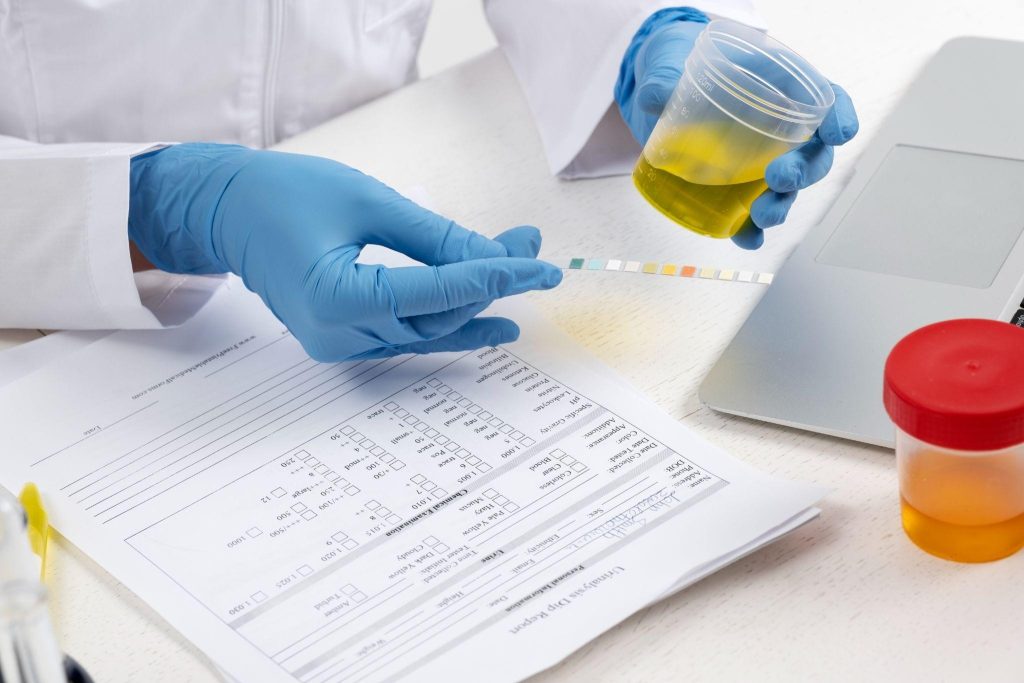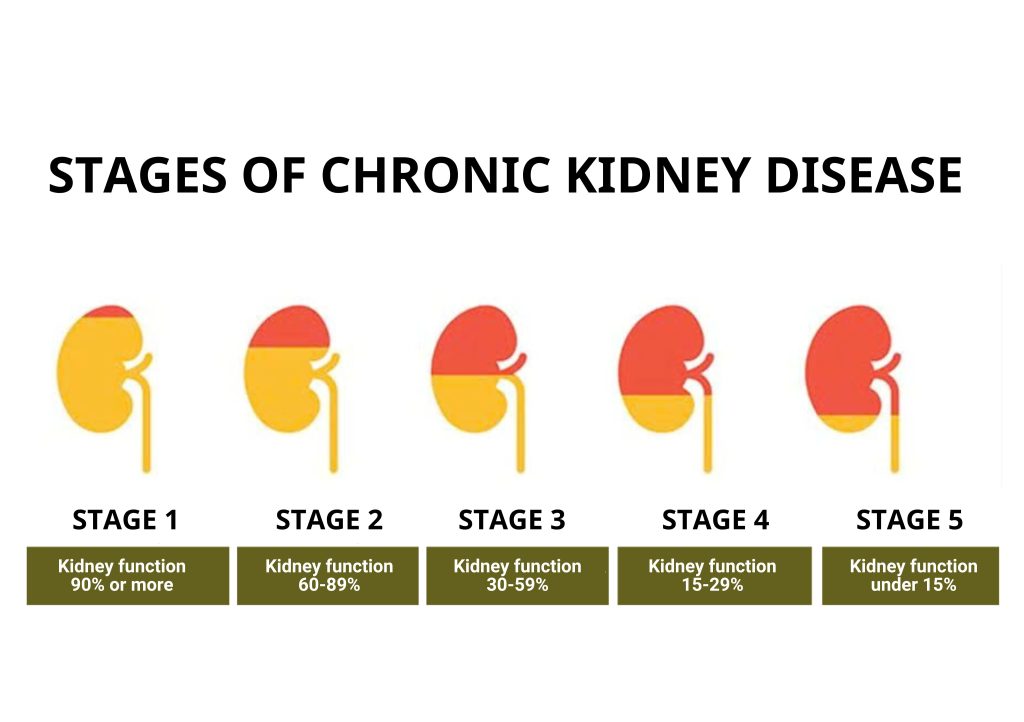Chronic kidney disease (CKD) is a silent complication that many diabetic patients face. Nearly 50% of end-stage renal disease patients undergoing dialysis are diabetic. Experts recommend that diabetic patients undergo annual kidney function tests to detect and manage chronic kidney disease at an early stage.
Unexpected Diagnosis of Kidney Disease Caused by Diabetes
During a routine health check at FV Hospital, Mrs. L.Q. (59 years old, from the Philippines) was shocked when doctors informed her she had kidney disease. Mrs. L.Q. had a history of diabetes but was managing her blood sugar levels with medication, and her overall health appeared stable, with no signs suggesting kidney issues.
Upon examining Mrs. L.Q., Specialist Level II, Chau Thi Kim Lien, MD, MSc – Internal Medicine Department – Nephrology Unit, FV Hospital, detected microalbuminuria (a condition where small amounts of protein are found in urine) at stage 2 and reduced kidney function. These were early markers of chronic kidney disease (CKD) caused by diabetes.
Dr Lien developed a treatment plan involving medication. Mrs. L.Q. was also guided by FV Hospital’s Nutrition Department on a tailored diet to control her blood sugar levels. After three months, follow-up tests revealed that the microalbuminuria had completely disappeared, her kidney functions had returned to normal, and proteinuria was no longer present.

“Patient L.Q. is one of the fortunate cases where early signs of kidney failure caused by diabetes complications were detected. Thanks to strict adherence to the treatment plan and a good response to medication, the patient recovered quickly. If the condition had not been screened and detected in time, it could have led to severe chronic kidney failure, with a significant impact on health,” shared Dr Chau Thi Kim Lien.
In diabetic patients, elevated blood sugar levels can damage the renal arteries and small blood vessels in the kidneys, resulting in impaired kidney function. According to Dr Lien, kidney failure progresses silently and usually shows no symptoms in its early stages, leading many people to neglect kidney health monitoring. Statistics indicate that up to 50% of end-stage kidney failure patients on dialysis are diabetic.
Treatment Methods for Chronic Kidney Disease in Diabetic Patients
Chronic kidney disease (CKD) refers to structural or functional kidney abnormalities that persist for more than three months. It can manifest through symptoms such as proteinuria (dark urine), hematuria (blood in urine), swelling in the extremities, abnormalities in urinary sediment, or irregularities detected through kidney ultrasounds or biopsies. CKD is also diagnosed when the glomerular filtration rate (GFR) drops below 60 ml/min.
CKD is classified into five stages based on GFR. For stages 1 to 4, treatment focuses on conservative methods, including medication, dietary changes, and other supportive approaches. For end-stage kidney disease (stage 5), in addition to medication and dietary adjustments, doctors may recommend dialysis or kidney replacement therapies. Kidney replacement options include hemodialysis, peritoneal dialysis, and kidney transplantation.
Treating end-stage kidney disease is both challenging and costly. “Kidney transplantation for diabetic patients remains limited due to the extensive vascular atherosclerosis in this group, which lowers the success rate. Therefore, careful consideration is crucial,” explained Dr Lien.

In the treatment of chronic kidney disease caused by diabetes, angiotensin-converting enzyme (ACE) inhibitors and angiotensin receptor blockers (ARBs) are common treatment methods that help reduce proteinuria. By 2023, with the rise of SGLT2 inhibitors and in 2024, the addition of RAS inhibitors for patients with chronic kidney disease, kidney disease treatment has become more effective. FV Hospital has imported the latest medications for chronic kidney disease treatment according to the protocols recommended by both global guidelines and the Ministry of Health.
What can be done to prevent chronic kidney disease in diabetic patients?

According to Dr Lien, the key to treating chronic kidney disease caused by diabetes is early detection so that treatment can be initiated and the patient’s kidney function can return to normal. If detected late, when the patient is in the macroalbuminuria stage, meaning protein in the urine is detectable through regular urine tests, or if the glomerular filtration rate (GFR) is too low, it may be difficult to restore kidney function to normal.
As soon as a patient is diagnosed with type 2 diabetes, they should undergo screening for chronic kidney disease using the Albumin/Creatinine Ratio (ACR) test and be monitored regularly every 6 months or annually. However, some provincial and local hospitals still lack this test, which results in patients missing the golden period for definitive treatment.
Diet is a crucial factor in managing chronic kidney disease due to diabetes. If kidney function has already been reduced, the patient should limit protein intake. “For diabetic patients, the most important thing is to maintain stable blood sugar levels, so their diet should follow a diabetes-specific meal plan, and they should take medications prescribed by a specialist to keep their blood sugar levels stable,” Dr Lien advises.
For more information on the treatment of chronic kidney disease caused by diabetes, please contact Internal Medicine Department – Nephrology Unit, FV Hospital or call (028) 54 11 33 33.

 Vi
Vi 












